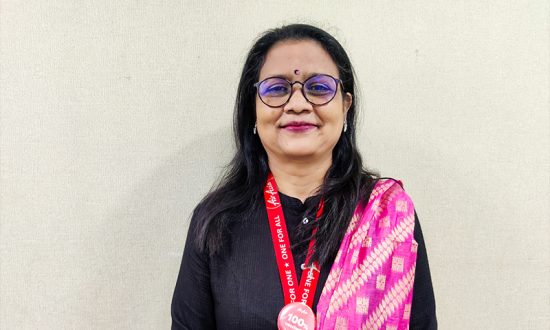Dr. Sangeeta Kujur is a Chief Medical Officer with AirAsia India since February 2015. She is an Aviation Medicine Specialist with an MD in Aviation Medicine from Institute of Aerospace Medicine, IAF, Bangalore. She completed her MBBS from St. John’s Hospital, Bangalore. Her journey in aviation began in 2005 with Kingfisher Airlines where she worked as a Medical Officer in Bangalore. As a Chief Medical Officer, she is responsible for the health and safety of all the employees. She is a First Aid Instructor, undertaking training for pilots, cabin crew and ground personnel. Additionally, she is also a DGCA approved Class II Medical examiner conducting medicals for aspiring pilots and cabin crew. Being a part of the Safety Dept, she is also involved in the Fatigue Management of the crew.
Since the first case of the novel coronavirus disease (COVID-19) was diagnosed in December 2019, it swept across the world and galvanized global action. This presented strategic efforts to institute the practice of physical or social distancing in countries over the world resulting in changes in behavioral patterns and shutdowns of day-to-day functioning.
While these steps were deemed critical to mitigate the spread of the disease, they have undoubtedly led to both short-term and long-term consequences in the mental health and well-being of individuals. These consequences are of grave importance and sustained efforts focused on prevention and direct intervention are needed to address the impact of the outbreak on the mental health and wellbeing of individuals.
Mental health has surfaced as an important aspect in recent times, however the concern here is that employees are conceived as human capital. The involvement of employees should be a prominent concern for every organization. Keeping employee morale high and maintaining their level of productivity can be a challenging task for employers. The mental health and wellbeing of employees should be a matter of concern for every organization, especially in the wake of the unforeseen circumstances that the past year has created.
At the grassroot level, it is important to know what mental health is. Mental health is a state of wellbeing in which an individual can cope with everyday stressors, work productively, and reach their fullest potential. Mental health is an essential component of overall health. Together, they make up our internal equilibrium. The days of not talking about mental health are gone. Positive mental health is important because it allows us to cope with challenges and setbacks that we may face, both personally and professionally. Having good mental health gives us the ability to recognize, express, and regulate our emotions. It allows us to empathize with others and enables us to have basic cognitive and social skills. It helps us flourish in our roles, manage stress, and boost our resilience. Ultimately, it allows us to reach our highest potential. When it comes to empowering wellbeing at work, creating proactive options that help people improve and maintain their mental health is the key to help employees flourish.
The COVID-19 pandemic has resulted in a considerable increase in the number of anxious, nervous, or bereaved workers owing to a sense of isolation caused by remote work, job insecurity, and health care. Individuals have become more cognizant about mental health and have begun treating it as a real, diagnosable condition that requires attention and support.
It is important to keep in mind that while we are all in this together, each person has unique life circumstances that may cause more or less acute concern. We cannot know who has vulnerable family members who may be at greater risk, or who already suffers from anxiety and experiences uncertainty and fear more acutely. Leading with compassion and empathy is more critical than ever before. Practicing self-compassion during this time is also important. Be honest about how you’re truly feeling, and remember that if you’re not feeling well, you’re not only being kind to yourself by staying at home, but you’re protecting those you work with as well. We have been promoting a Peer support program within the company. It is a safe space for employees to express their concerns with internally trained Peer Supporters related to work, health, finance or any other aspects. In case of critical situations, the peer supporters direct the employees to professional help. To reduce the stress amongst employees, Internal talent and Managers have been arranging regular Zoom Connects along with Yoga, Meditation and Fitness sessions.
Research shows that mindful meditation can reduce symptoms of stress, anxiety and depression and can have a significant impact in the workplace. Our brains have developed to focus on threats. Meditation helps deactivate the emotional center of the brain which is responsible for emotional reactivity that keeps us hooked to news cycles and fuels chronic stress. When we help our brains stay grounded, we are better able to engage rationally. Meditation works by helping people regulate emotions, changing the brain to be more resilient to stress, and improving stress biomarkers. To that end, yoga, meditation and fitness sessions are arranged at regular intervals at our workplace to alleviate stress. Empowering the mental health and wellbeing of our employees as well as for each and every individual is the most critical need of the hour and we are committed to creating conducive, safe spaces that help them at all times.


